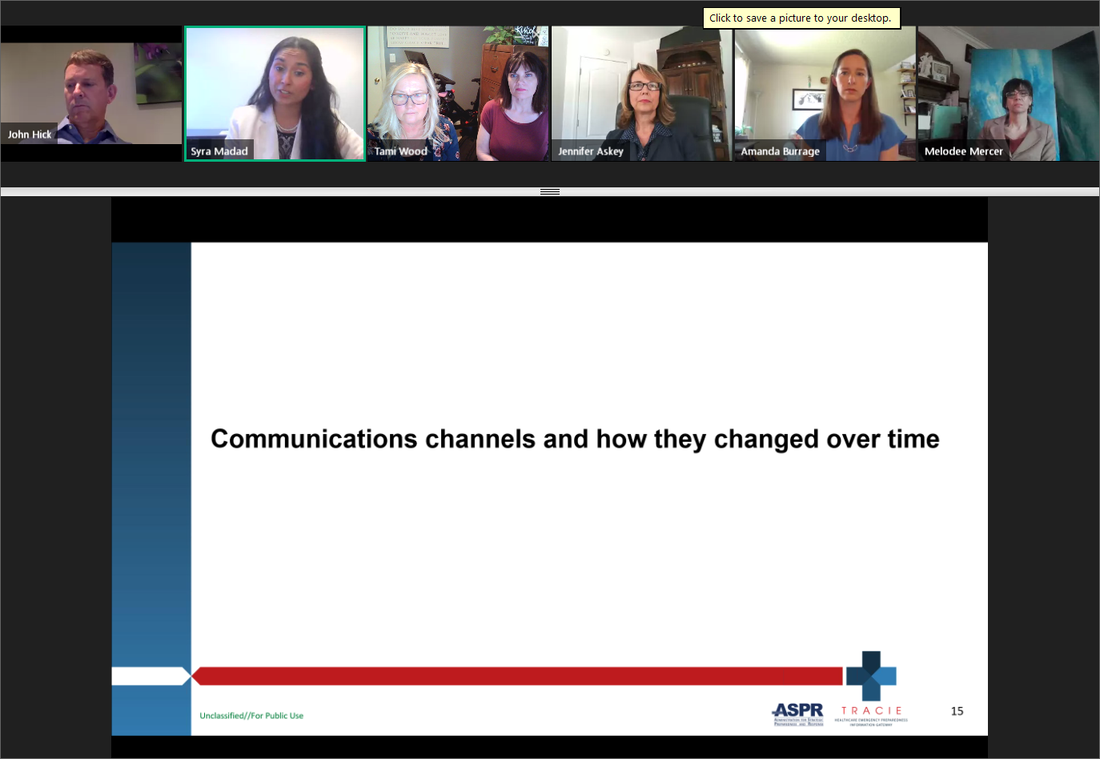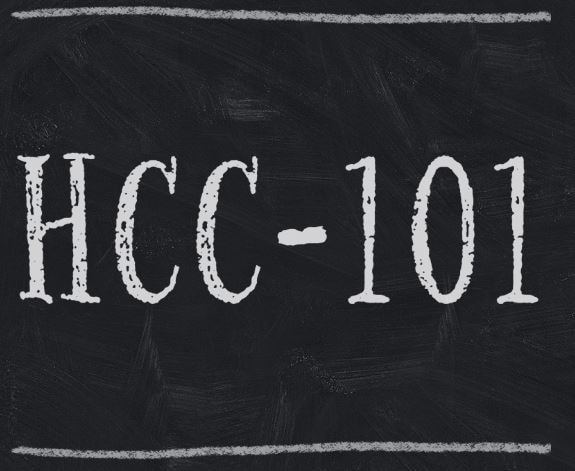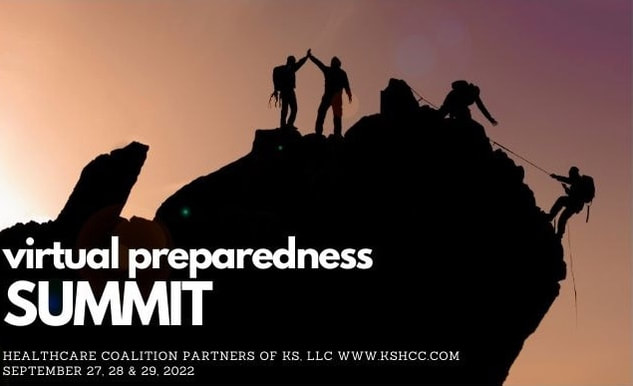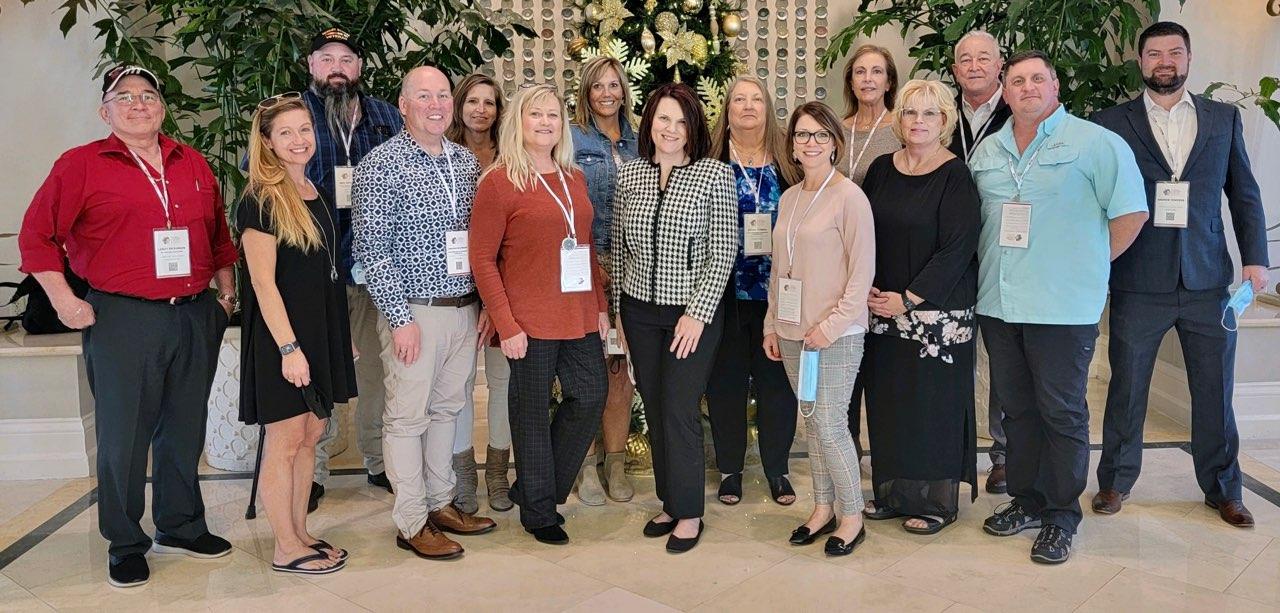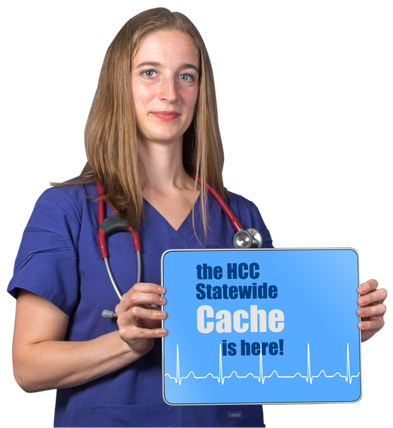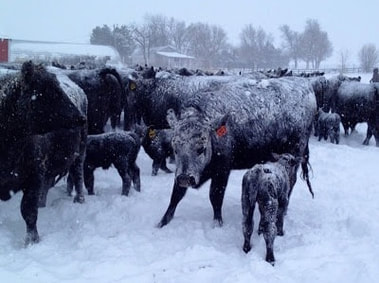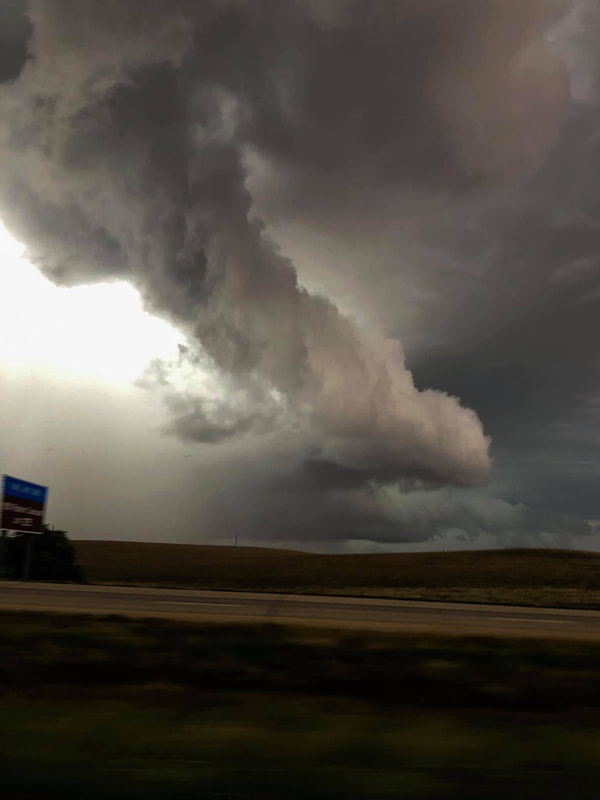Kansas Healthcare Coalitions
Seven Coalitions
~ 3 Million People
105-Counties Strong
|
Introduction to healthcare coalitions in kansas
The establishment of Healthcare Coalitions across the United States began in 2017. Prior to that time, monies designated for Emergency Preparedness endeavors flowed directly to hospitals and health departments to secure needed resources for emergency response/readiness. The formation of Healthcare Coalitions (HCC) was done for a variety of reasons, chief of which was the need to coordinate efforts to prepare for emergencies impacting agencies, communities, regions and states. Four core agencies are key to HCC success: hospitals, public health departments, EMS and Emergency Mgmt. Additionally, many other healthcare and emergency-related entities are represented in HCCs. Together these groups plan, prepare, train, exercise, and develop policies too effectively respond to virtually any type of disaster. They secure resources for ready deployment, offer ways to maintain certifications, present best practices and encourage collaborative relationships. Each HCC has their own Clinical Advisor, Readiness & Response Coordinator and Infection Prevention Specialist. This website is available to members 24/7, regular meetings are scheduled at least six times per year and available virtually. A monthly newsletter and a helpful resource guide are distributed monthly and an annual Emergency Preparedness Summit is planned for members. REgister for WEbsite Access
Regional Response Coordinator Position Announcement
| |||||||||||||
Announcements
No announcements at this time.
how to navigate this site
Members in good standing of any of the seven Kansas Healthcare Coalitions (METRO, NC, NE, NW, SC, SE, and SHERT) are eligible for member-only website access. To login, use the Login link on the homepage. If you are an active member in good standing, but do not have a login, use the Register link under the main menu of the coalition you wish to join. Be sure to use your business email address when registering or it will delay the approval process.
Coalition Membership and Website Registration are not the same. When you use the register link under the main menu of the coalition you want to join, you are registering for coalition membership, not website access. If you are an active coalition member, but do not have a login for the website, contact your Readiness and Response Coordinator who will direct the webmaster to send you an invitation from the website to register for website access. Watch your inbox and junk mail folders for the invitation to register for the website.
Registered Website Users: When you log into your account, you will see a pop-up box that lists all of the webpages you have access to. Close this box by clicking on the x and use the website top level navigation links to navigate the website.
If you can't access a page, you'll get a login screen. Click on "My Account" in the top level menu (must be logged in) to see if you have permissions to view the blocked page. If you have any questions regarding the pages you can access, visit the FAQ/Help page or contact your Readiness and Response Coordinator.
Coalition Membership and Website Registration are not the same. When you use the register link under the main menu of the coalition you want to join, you are registering for coalition membership, not website access. If you are an active coalition member, but do not have a login for the website, contact your Readiness and Response Coordinator who will direct the webmaster to send you an invitation from the website to register for website access. Watch your inbox and junk mail folders for the invitation to register for the website.
Registered Website Users: When you log into your account, you will see a pop-up box that lists all of the webpages you have access to. Close this box by clicking on the x and use the website top level navigation links to navigate the website.
If you can't access a page, you'll get a login screen. Click on "My Account" in the top level menu (must be logged in) to see if you have permissions to view the blocked page. If you have any questions regarding the pages you can access, visit the FAQ/Help page or contact your Readiness and Response Coordinator.
Kansas Region K Hazard Mitigation Survey
Danielle and Tami representing HCCPofKS at the ASPR Tracie Communication Roundtable.
Course Materials for the Healthcare Coalition Leadership 101 course are now available!
K-SERV is now SERV-KS, learn more about it on the Volunteer Page and get signed up today!
2022 Kansas Healthcare coalitions virtual preparedness summit
'partners planning together' |
The 2022 Kansas Healthcare Coalition Virtual Preparedness Summit is designed to educate, encourage and equip first responders, first receivers, community leaders and others to strengthen the resiliency and preparedness efforts of Kansas. The three-day virtual conference will feature keynote speaker Dr. Benjamin Abo and other sessions. The conference will take place on September 27th, September 28th, and September 29th. For more information, contact Jonathon Blackburn ([email protected]).
|
Watch Dr. Tania Glenn's presentation on Traumatic Stress
|
Visit SmashingTheStigma.com
|
Dr. Tania Glenn is the president of Tania Glenn and Associates, a clinical practice in Central Texas that is focused on promoting resilience and providing critical care to first responders and veterans. As a leading national clinician in the treatment of post-traumatic stress disorder (PTSD), Dr. Glenn specializes in creating effective programs designed to mitigate traumatic stress and to assist patients with their return to normalcy as quickly as possible. Her timely presentation will focus on creating programs to mitigate traumatic stress, and dealing with mental health trauma.
|
Inter-Facility Transfer - COVID 19 Assessment Form:
Inter-Facility Transfer - COVID 19 Assessment Form:
The purpose of this form is to assist in fostering communication during transitions of care, more specifically, to transparently identify the COVID-19 status of the patient/resident prior to transfer between facilities.
The intent is to protect patients/residents, healthcare staff and their facilities as all transferring parties (post-acute care facility, EMS and acute care facilities) will know the COVID-19 screening question answers for the patients/residents as they move throughout the system. By definition for this form, Post-Acute Care facilities refers to any setting in Kansas where a patient/resident receives additional medical care after discharge from a hospital. This form can be utilized in the following transfer scenarios:
We encourage but do not require the use of this form for ALL inter-facility patient movement in Kansas to prevent any adverse events which may severely affect patient prognosis. We equally encourage facilities to speak with their partners in order to come up with a process of incorporating this form into the patient/resident transfer process."
The purpose of this form is to assist in fostering communication during transitions of care, more specifically, to transparently identify the COVID-19 status of the patient/resident prior to transfer between facilities.
The intent is to protect patients/residents, healthcare staff and their facilities as all transferring parties (post-acute care facility, EMS and acute care facilities) will know the COVID-19 screening question answers for the patients/residents as they move throughout the system. By definition for this form, Post-Acute Care facilities refers to any setting in Kansas where a patient/resident receives additional medical care after discharge from a hospital. This form can be utilized in the following transfer scenarios:
- Hospital to Post-Acute Care Facility
- Post-Acute Care Facility to Hospital
- Hospital to Hospital
- Post-Acute Care Facility to Post-Acute Care Facility
We encourage but do not require the use of this form for ALL inter-facility patient movement in Kansas to prevent any adverse events which may severely affect patient prognosis. We equally encourage facilities to speak with their partners in order to come up with a process of incorporating this form into the patient/resident transfer process."
2021 National Healthcare Coalition Conference
Get involved
All Kansas Coalitions meet quarterly, or more frequently. Click the button below to view our statewide calendar.
Healthcare Coalition Statewide Cache
Online Ordering is available now
Healthcare Coalition Partners of Kansas, LLC was awarded a COVID-19 Grant under the auspices of KDHE, to assist in providing resources and equipment for COVID-19 response in the State of Kansas. This grant will help supply needed resources to Kansas Healthcare Coalitions that cannot be obtained through normal purchasing routes, neighboring healthcare partners, or local healthcare coalition caches. You can order from the KS HCC Statewide Cache now, through June 30, 2022 or until supplies are exhausted, whichever comes first.
- Inventory is housed in a secure, climate controlled location.
- Inventory is only available to Healthcare Coalition Members in Good Standing. Orders will be taken and tracked through the Healthcare Coalition Website.
- Decisions with regard to deployment of the resources will be based on guidance from State Clinical Advisors and includes potential exposure/spread, current patients with COVID-19, number of patients on ventilators and PPE available.
- Assistance with transportation to specific locations is included in the grant.
- To access the cache, log in to kshcc.com and click on the link below for your coalition, e.g., KSMETRO, NCKS, NEKS, NWKS, SCKS, SEKS, SHERT. For questions regarding the HCC Statewide Cache, or for website access, please contact your Readiness and Response Coordinator. The cache is available now, through June 30, 2022, or until all items have been exhausted.
- Note: Repayment of the cache will not be required.
NEW Pediatric Disaster preparedness toolkit
Brittney Nichols, Emergency Medical Services for Children (EMSC) Coordinator, recently finished a toolkit of links to different pediatric preparedness resources that will be very helpful to our Healthcare Coalitions.
Crisis Counseling
The Kansas Department of Health and Environment (KDHE) has asked that we make the attached flyer on crisis counseling available to all HCC members. It''s part of their Stay Safe & Informed series. Updated 01.27.2021
KDHE is recruiting for serv-ks
The Kansas Department of Health and Environment (KDHE) is recruiting new members to the Kansas System for the Early Registration of Volunteers (KSERV). Please see the attached flyer for additional information and a link to register. Visit our Volunteer webpage for more information. (Ongoing)


